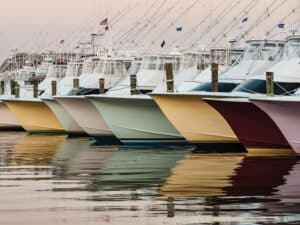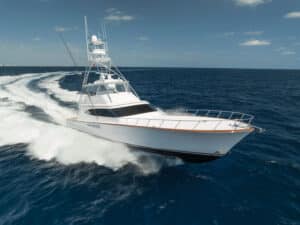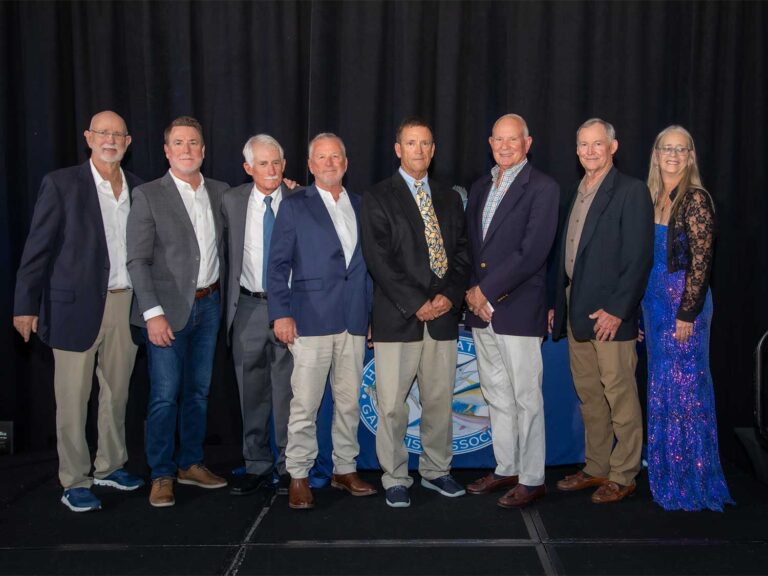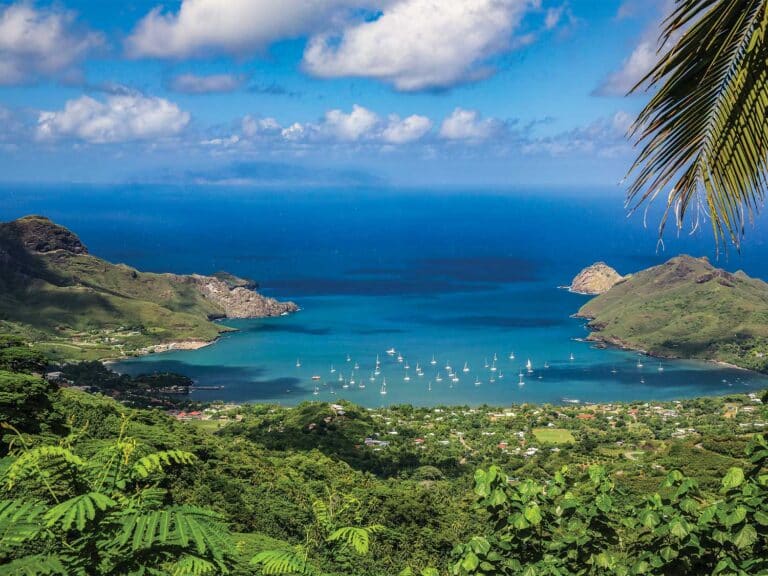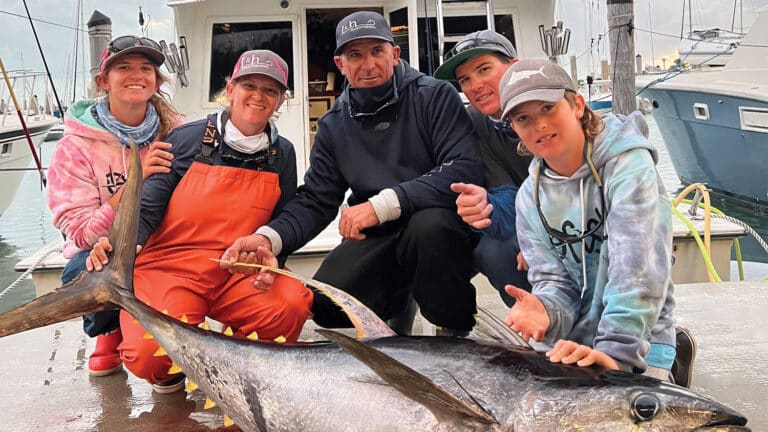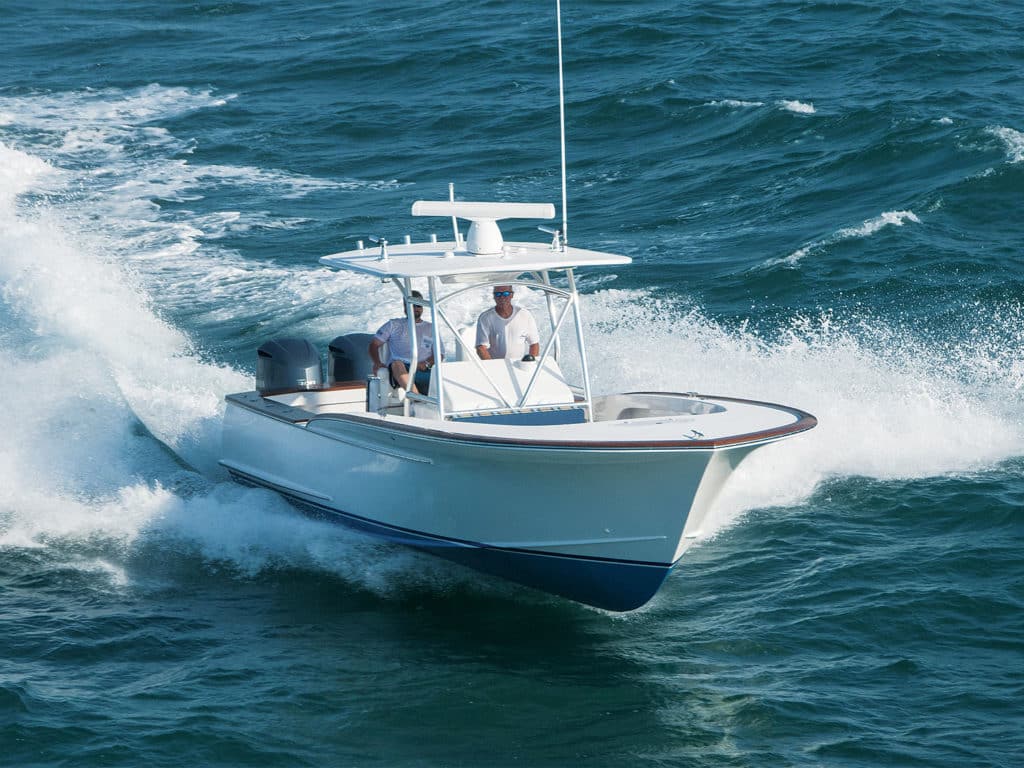
Special delivery: Sign up for the free Marlin email newsletter. Subscribe to Marlin magazine and get a year of highly collectible, keepsake editions – plus access to the digital edition and archives.
Versatility is one of the strong suits for most outboard-powered sport-fishers, and was a key point for Dave Marston, owner of Miss Alison, the 32-foot Jarrett Bay he named for his wife. Built in 2013 for retired professional golfer Curtis Strange, it was exactly what Marston was looking for when he opted to sell his 35-foot Cabo four seasons ago.
“I grew up boating my whole life in New Jersey and fished the canyons out of Cape May a lot on the Cabo,” he says. “Then I moved from Philadelphia to Miami—I ran the Cabo back and forth for a bit but realized I needed something different for the Florida style of fishing.”
Browsing Instagram one Sunday afternoon, he saw a brokerage ad for the Jarrett Bay custom center-console and instantly fell in love with the boat’s beautiful lines. After a quick trip to North Carolina for a sea trial that Tuesday, he returned once the deal was finalized and ran the boat single-handedly from Beaufort to Miami over the course of two and a half days, most of it on the outside and in less-than-perfect seas. Today, Miss Alison spends the majority of her time in Islamorada, gateway to everything the Florida Keys has to offer in terms of piscatorial variety.
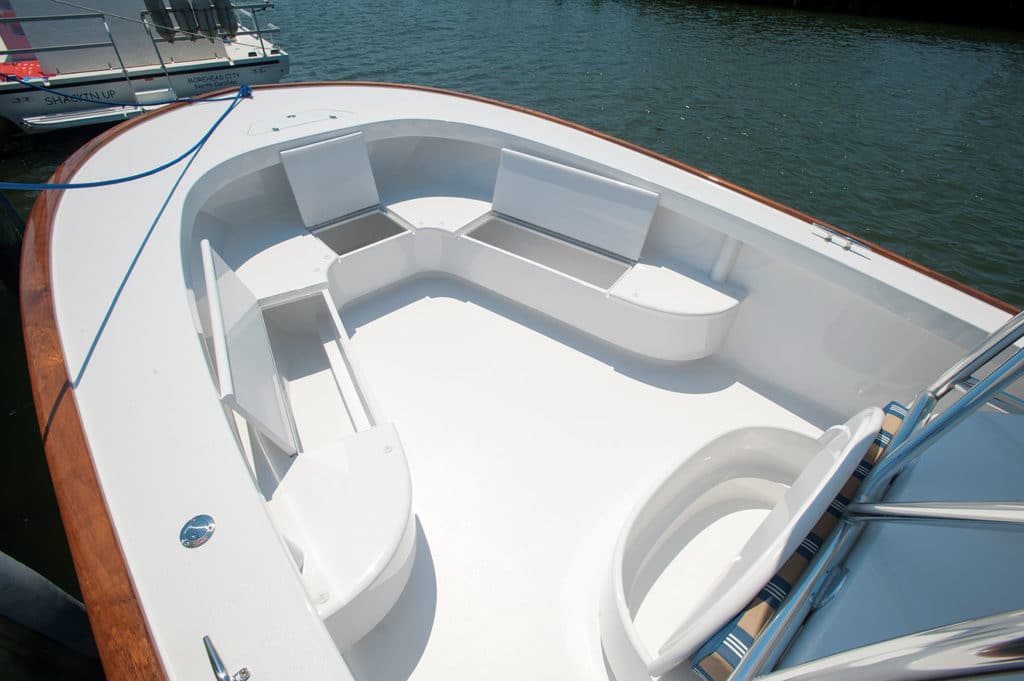
“I fish a lot by myself,” Marston says. “So far, I’ve caught white marlin, sailfish and swordfish, all solo. The layout of this boat is perfect: I can put up the kite off the bow with three baits plus flat lines for sails or go swordfishing on the edge. I can troll for dolphin or high-speed for wahoo. I can bottomfish on the reef—pretty much anything. It’s a very dry boat with a lot of flare in the bow; it’s excellent in a head sea and big enough to still go fishing even when it’s pretty nasty out.”
A pair of 300 hp Yamaha outboards on an Armstrong bracket gives Miss Alison a cruising speed in the 32- to 34-knot range depending on seas and load, with a top end of 40 knots in optimal conditions, although having a soft ride and a fishing-friendly layout were design priorities over flat-out speed. The SeaStar power-assisted steering gives the boat sports-car-like maneuverability while running through Islamorada’s mangrove-lined channels.
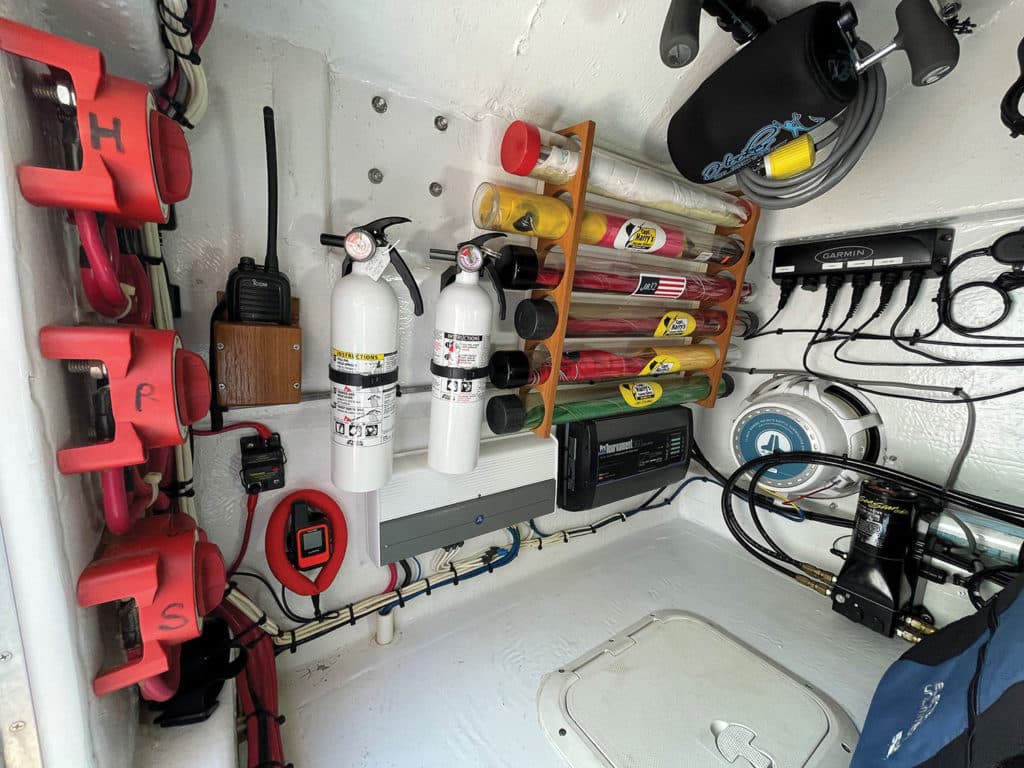
Some of the custom touches include a genuine teak cockpit, covering boards and toe rail, a Bausch Towers T-top, and ample storage beneath the bow seating as well as in the large console, which Marston custom-designed to store his kites and electric kite reels within easy reach and yet out of the elements. He added a pair of Marsh Tacky Carbon carbon-fiber outriggers and teak-trimmed Release Marine bolster seats for the helm, and also had the electronics package upgraded to a pair of Garmin 8616 multifunction displays, Fantom 54 radar, autopilot and more. A 35-gallon livewell resides beneath the aft-facing mezzanine seating—Marston says that if he ever decides to tournament fish again in the future, he would add a removable above-deck well, but for his current style of fishing, the boat’s current setup has plenty of bait capacity.
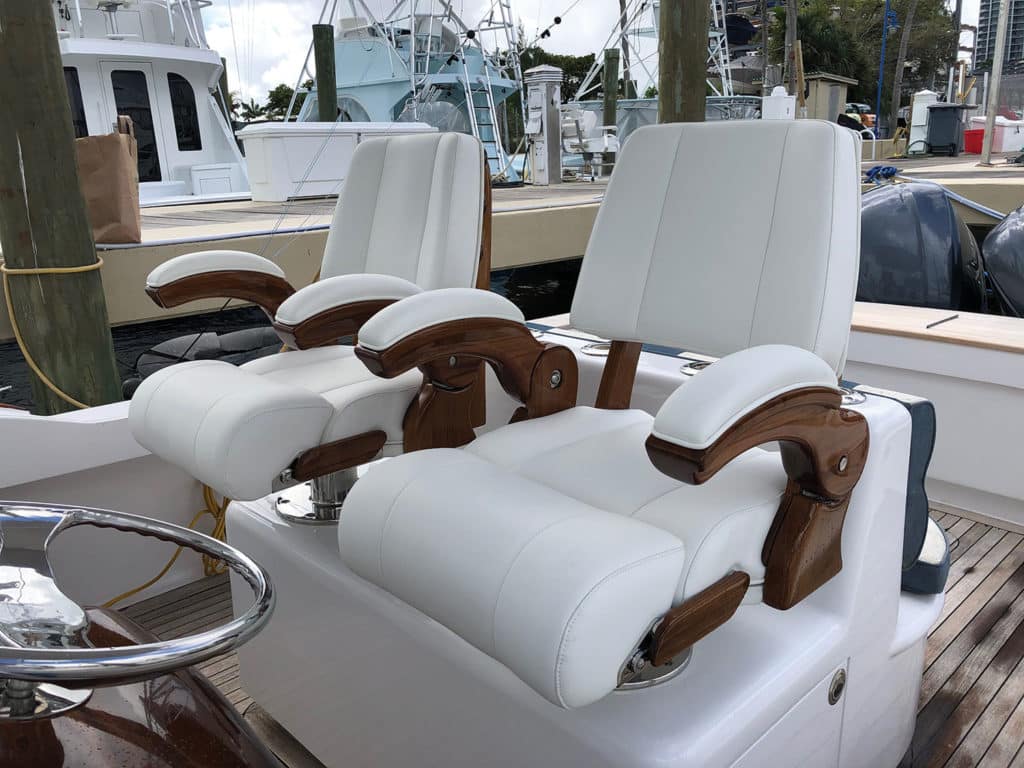
Along with the aforementioned bow flare, Miss Alison shares many construction similarities with her larger sisterships, according to Jarrett Bay engineer Peyton Lanier. “We use the same okoume plywood for the hullsides and the same fir plywood for the bottom, which is then glassed inside and out,” he says. “The console and forward seating are all made of PVC foam core so that we can keep the hull as strong as possible while saving some weight on the topside, just like we do with our larger boats. We did scale it down a bit because this is a 32-footer, not an 80.”
Read Next: Meet the man behind the iconic Jarrett Bay brand: Randy Ramsey.
Lanier also noted the boat’s simplicity as a key feature. “The previous owner didn’t want a bunch of hatches in the deck; he felt that was a safety issue while fishing offshore by himself, which is something he also did all the time,” Lanier says. “This boat has just one hatch, which is the aft lazarette access.” The result is a boat that’s easy to run, easy to fish, and easy to maintain.
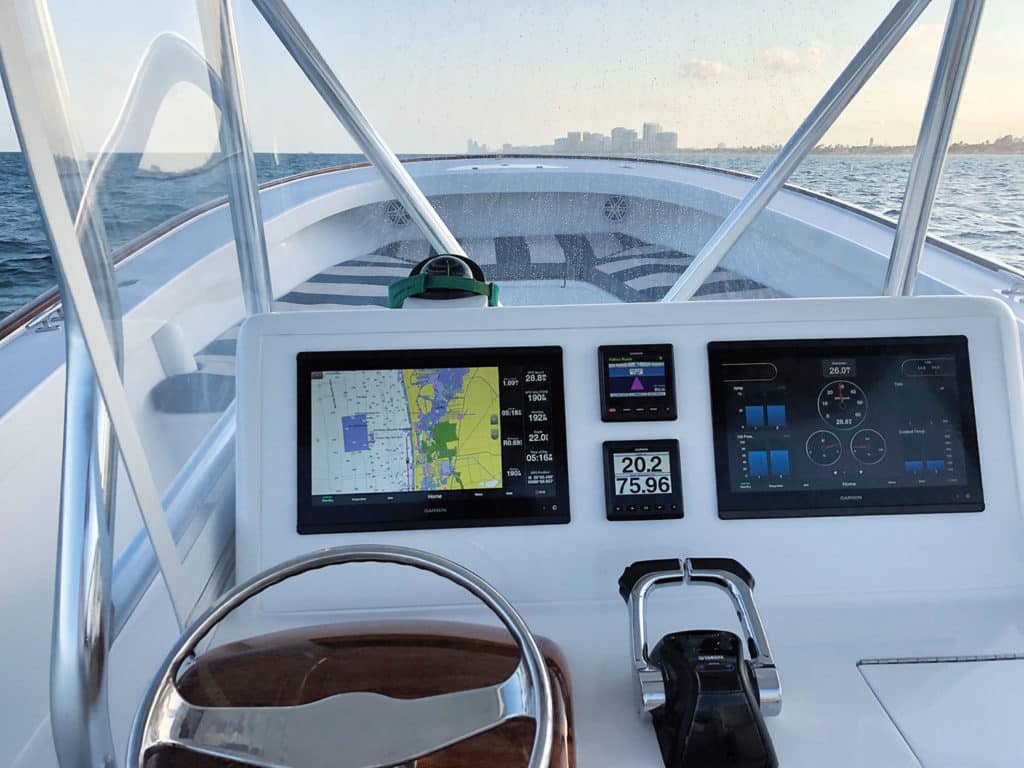
“I love being on the water,” Marston says. “The boat had about 300 hours on the engines when I first bought her, and I doubled that in the first year. I had known about the quality and craftsmanship that goes into all the custom Carolina boats, but when I saw it for myself in this Jarrett Bay, I was just really blown away. The ride is amazing. And it definitely stands out down here [in the Florida Keys]. There’s not a day that I’m out on the water that people don’t ask me about the builder and the ride. She really is a beauty.”


